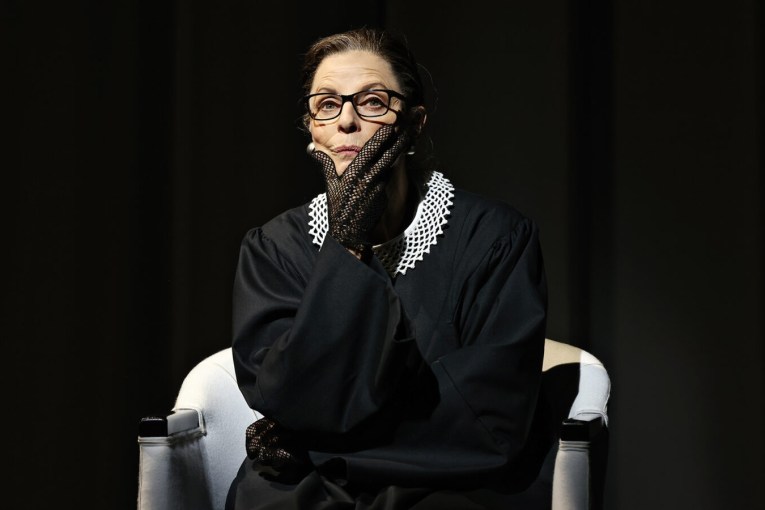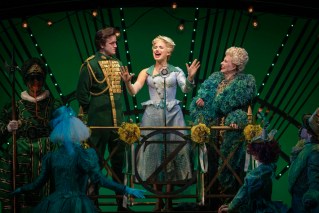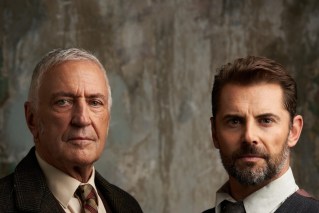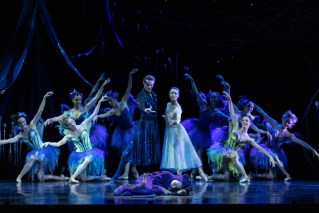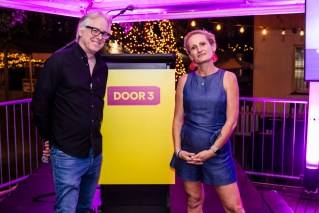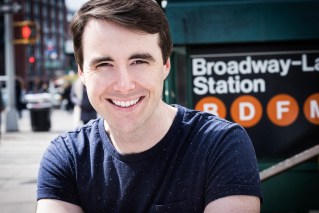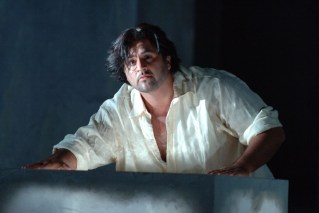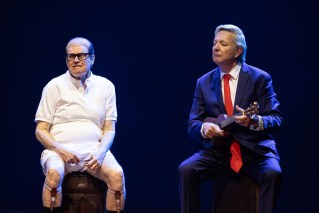All the world’s a stage, and this is how (and where) a star is born
If you want to gauge the success of Griffith University’s Bachelor of Musical Theatre program, look no further than the current Australian production of WICKED
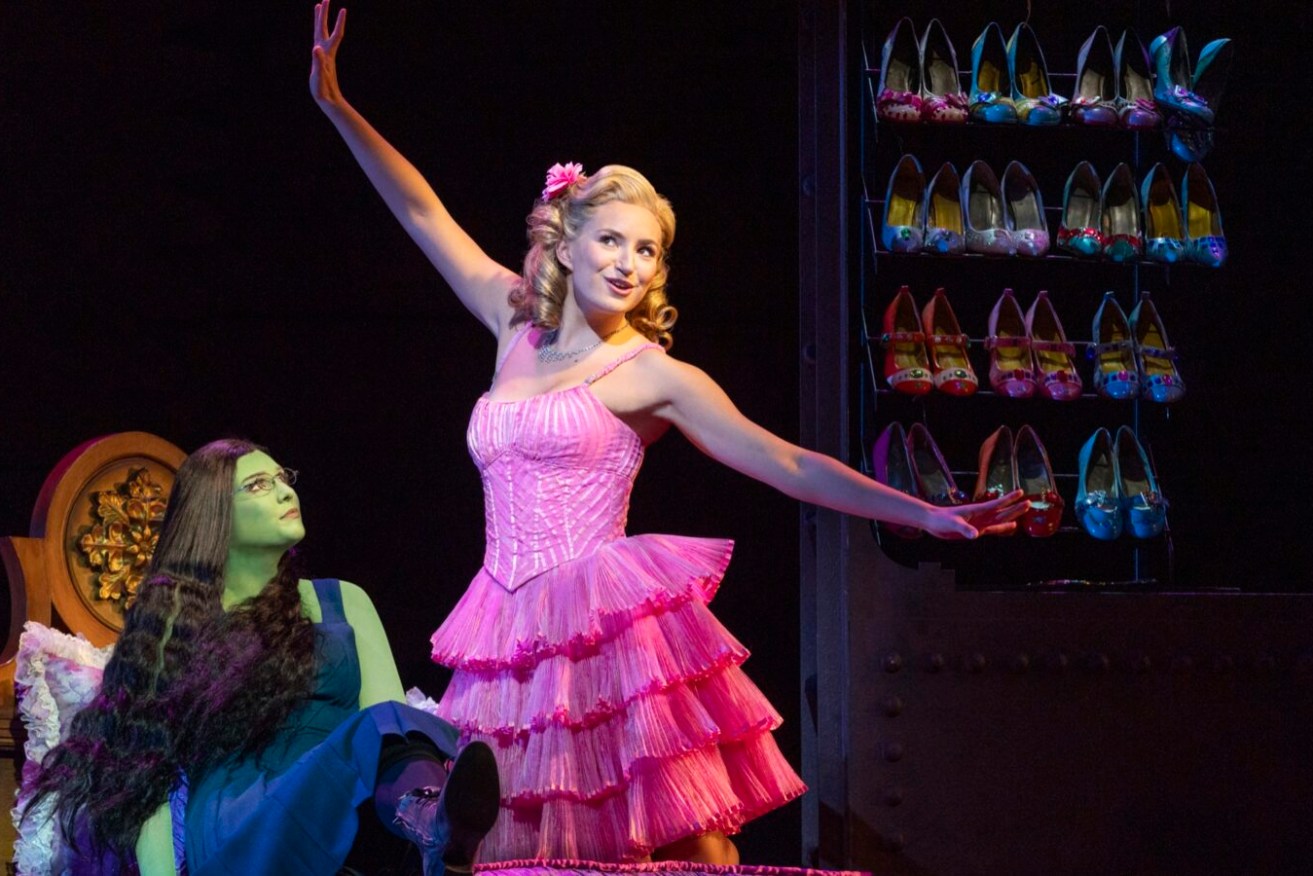
Griffith University Bachelor of Musical Theatre Program graduate Courtney Monsma (right) has gone on to star as Glinda the Good Witch in the Australian production of WICKED
“Whichever Glinda you see, you see one of ours,” explains Professor Paul Sabey matter-of-factly.
Professor Sabey, who founded Griffith University’s Bachelor of Musical Theatre program in 2010, is referring to graduates Courtney Monsma, who stars as the perennially perky “good witch” Glinda, along with Courtney’s sister and understudy Emily Monsma and fellow understudy Jordan Malone. (For good measure, the production’s male lead, Fiyero, is played by another alumnus of the program, Liam Head).
Until the launch of the Bachelor of Musical Theatre offering at the Queensland Conservatorium 12 years ago, aspiring local performers gravitated to prestigious programs outside of the state – the Victorian College of the Arts in Melbourne, NIDA in Sydney and WAAPA in Perth, among others. In a sign of how things have changed, 65 per cent of Griffith University’s current musical theatre cohort are from interstate.
I speak with Professor Sabey by video call from his office inside the Queensland Performing Arts Centre during a busy week of auditions for the 2024 intake. Almost 200 shortlisted hopefuls are being put through their paces to determine 20 spots. Many more applied through the initial video submission phase.
The program’s co-location at QPAC was both incremental and deliberate. The first Griffith University Bachelor of Musical Theatre students made do at the Conservatorium, even though its studios were designed for other art forms. Within 12 months, the program transferred to a dance studio located in Woolloongabba, which was better suited to its needs, before makeshift studios were built across the road. That facility, in Burke Street, was the program’s home for several years, but will be decommissioned at the end of this year.
Today, as part of a broad partnership, the Bachelor of Musical Theatre is housed within QPAC, and the students perform three times a year in the Cremorne Theatre. Music theory, and one-on-one vocal lessons are still held at the Conservatorium, however.
As Professor Sabey explains, the QPAC connection has been there from the very beginning, when he met a delegation who had travelled to London to observe the successful musical theatre program he had established at the Mountview Academy.
“People from QPAC and the university came over to London to see my work at the school there. And long story short, sort of said, ‘This is something we’re keen to have’. And so I came over and started the course. The partnership really just blossomed … it was a natural development to take it to that next stage. And what better way to give students work-integrated learning than to put them in a major art centre?”
Beyond its enviable connections to a major industry player and employer, this musical theatre degree is different in other ways, too.
“All our third-years leave being qualified mental health first aiders. All the staff are mental health first aiders. This industry is uniquely amazing. But on the flip side of that, it also sucks at times,” Professor Sabey admits. “And the people who are going to change this business and change it for the better are the ones we are teaching now.”
(In a later conversation, Professor Sabey reveals that graduates have contacted him to say that this training allowed them to help colleagues who were at serious risk of self-harm).
In an accomplished four-decade career as a musical theatre educator, Professor Sabey has seen changing attitudes towards the profession.
“Everyone used to speak about the triple threat: the singer, dancer, actor. It’s a bit out of date now. It’s now the quadruple threat because the fourth one is the good company member and that’s what people want,” he says. “You are only as good as your last job. We’ve all heard that many times. I need to make sure these graduates get more than one job. And you know what? They do.”
The roll call of alumni credits grows by the year, and is too long to print. It includes Lorinda May Merrypor, the star of the Australian production of & Juliet; Georgina Hopson, who appeared in the world premiere season of Bananaland at the Brisbane Festival; and Kimberley Hodgson, currently featured in the national tour of Miss Saigon. Shubshri Kandiah and Jackson Head have landed the lead roles of Belle and Gaston respectively in the new Australian production of Beauty and the Beast.
At the Showcase concert held at the Cremorne Theatre last weekend, the graduating musical theatre class of 2023 demonstrated how three years of training could be condensed into a brisk, seamless package, aimed at entertaining family, friends and agents alike. Stage time was forensically apportioned across solo and group numbers so that each performer had precisely one minute and 45 seconds in the spotlight.
This time was not wasted, as the newest graduates of the program attacked diverse, ambitious repertoire, hungry for their big break.
Conscious that the program’s benefits should extend beyond 20 talented students per year, Professor Sabey has led the creation of the Queensland Academy of Excellence in Musical Theatre, which launched in August. The academy is another extension of the QPAC partnership, and will see new, part-time courses on offer, and travelling regional workshops staged throughout the state.
Another of the academy’s aims is to encourage greater investment by the private sector and philanthropists in the thriving Queensland musical theatre economy.
Enabling higher participation from under-represented groups is a key goal.
“It’s really important education doesn’t just start here when they’re 17, 18. We need to make sure we connect with them leading up to this point and that’s why these workshops in the regions are so important,” Professor Sabey says. “And we’ve just been able to secure some scholarships as well for people who possibly wouldn’t have a pathway into musical theatre training to be able to be supported to come along and study in the academy. Which is fantastic.”
For a calendar of concerts and productions featuring Bachelor of Musical Theatre students, visit queenslandconservatorium.com.au
This article is republished from InReview under a Creative Commons licence. Read the original article.
InReview is an open access, non-profit arts and culture journalism project. Readers can support our work with a donation. Subscribe to InReview’s free weekly newsletter here.
